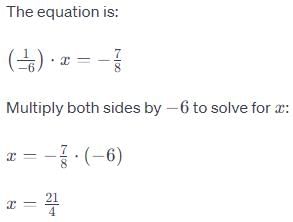Olympiad Test: Rational Numbers - Class 7 MCQ
20 Questions MCQ Test - Olympiad Test: Rational Numbers
The product of two rational numbers is -7/8 . If one of the numbers is 1/-6 .Find the other.
How is -28/84 expressed as a rational number with numerator -4?
Which of the following is a rational number between 1/4 and 1/3 ?
Which of the following is the correct arrangement of  in descending order?
in descending order?
What is the sum of the additive inverse and multiplicative inverse of 2?
Which among the following is a rational number equivalent to -5/-3 ?
Which number is in the middle if -1/6, 4/9, 6/-7, 2/5 and -3/4 arranged in descending order?
What is the average of the two middle rational numbers when  and
and  are arranged in ascending order?
are arranged in ascending order?
By what rational number should -3/5 be multiplied to obtain 21?
The sum of two rational numbers is −3. If one of them is -11/5, find the other.
Which of the following is the resultant of 1/12 + -1/3 + -1/6 + -5/7 + 3/4 + 10/7?















 . So descending order is
. So descending order is 
 that is
that is 























